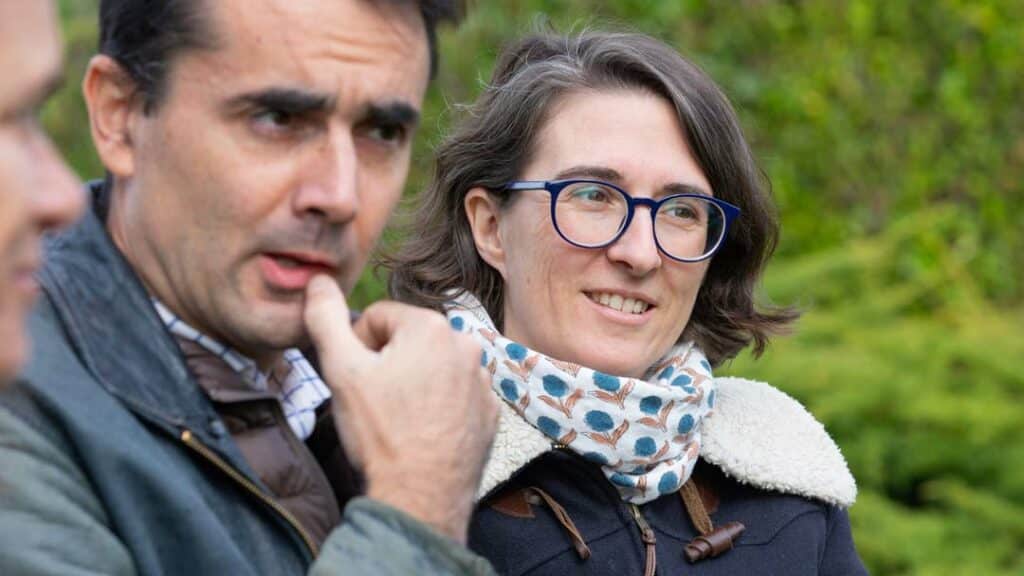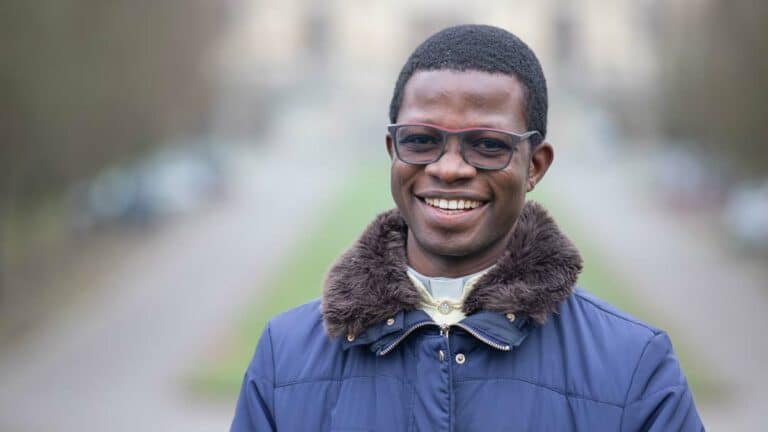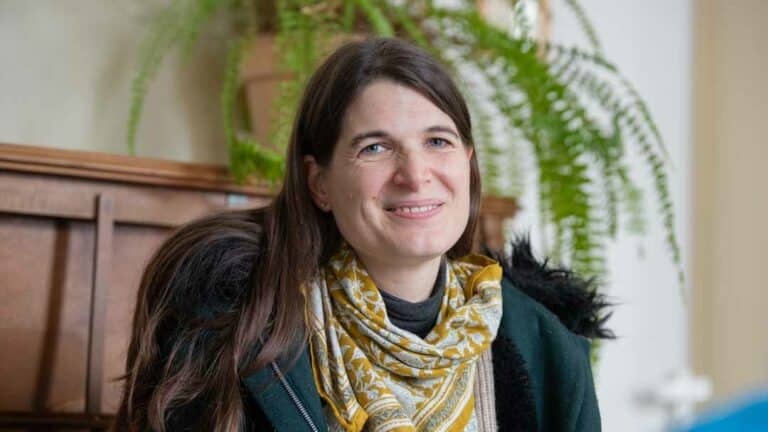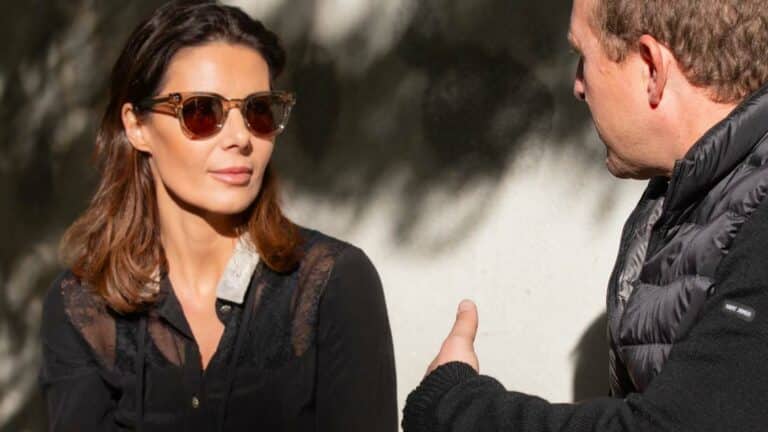Following the drowning of their young son Sixte, Éléonore and Gilles told us their story:their shock, their revolt, followed by a slow journey towards peace. The Word of God opened a breach of hope – I am the resurrection and the life – whilst prayer, their close family members’ presence along with charitable action “did not suppress everything but were soothing.” Both testify of a path where faith became stronger, where Mary became closer and where the sharing of their suffering with others allowed them to move forward. “Maybe we were not completely comforted but we found a lot of peace.” Their testimony is for all those who wonder how they can keep on their feet in the midst of a trial.
“We lost our son, Sixte, he was a little older than four. He died from drowning during the summer. Eléonore uses simple words because the fact is both simple and terrible. “Death entered our life without warning, with the brutality of an accident. Nothing suppresses such a shock – the house, our habits, my child’s presence in each corner. Gilles found himself rummaging through his memories trying to remember some minute actions like: “Did I give him a kiss before I left?”
Offering one’s suffering
Two months before Sixte’s death, Eléonore was impacted by the death of another little boy she had not heard of before: “I had read a lot of things, I was looking for things about death, and I’d found his death revolting in fact. Therefore I read a lot about the offering of suffering. I took notes, to record what I understood. When the accident occurred, those reads supported me. I then discovered how suffering can partake of love. This is not theoretical talk, I am now experiencing deep within what I had but guessed. The words I read gained a new meaning. They helped me perform minuscule actions though decisive ones.”

Saying “yes” and accepting what I can’t change
To what extent could suffering partake of the ways of love? These words are from John Paul II. And they changed everything. “When my turn to suffer came, I knew it was not useless because I had been able to say ‘yes’. I said: ‘Alright Lord, it’s m turn, I accept it. You’ll have to help me, because I am not very strong myself. But I know you have me participate to the mystery of the cross.’ I know that through this suffering, I can take part to the salvation of my children, my husband, my family, my little boy who went up to heaven – a lot of people in fact.”
Eléonore does not identify acceptance with resignation. “I accept what I cannot change. I ask for help, because I am not very strong. That ‘yes’ does not suppress the pain. It puts me in a relationship. I cling to the cross. I believe that when I entrust my suffering, it can become a path of love. I said that again when I pulled my son out of the water. I know exactly when I said it to him.”
A new closeness to God
“I have a sense of God watching over us. I see incredible moments. I don’t know how to describe them other than by this word: watch. It’s as if, in the midst of a storm, a discreet presence was watching over us. The day of the tragedy, it was summer and it was very sunny. And I could see Mary’s mantle in the bright blue sky, watching over us. The Lord is very close to those who suffer, and through His cross, He makes it possible for it not to be in vain. Because it’s revolting, it remains revolting and we have the right to revolt, but it can’t be useless if we hang it up on the cross.”
Finding support in the lives of saints
During the days after the accident, Eléonore looked for support from various sources: “I opened some books, I read letters written by saints, I sought help with couples who have suffered. I read Louis and Zélie Martin. I wrote down enlightening sentences. I collected a few companion books. This research was helpful as it showed that there is some ‘afterwards’ even if I didn’t yet see it clearly. Reading does not suppress the pain but it loosens up the grip. I recognized some words of truth. I leaned on the lives of people who had been through the ordeal and found a way to continue to love.”
As to Gilles, he too flicked through a lot of psychology pages. “I realized I was not learning much from them. On the other hand, the testimonies of those who went through the same ordeal comforted me. When you loose a child, you feel extremely lonely. Nothing exists anymore. I get relieved when I talk about that solitude with other parents who have experience it too.”
Seeking help from others to survive
Gilles reached out to people who have been through his ordeal: “For some time, we would talk to bereaved people on the phone. I needed to hear the voice of someone who knows. I needed to be shown that you can still be on your feet after that. Talking to someone who had the same experience was already a way to get some relief. Not complete relief but it allowed me to breathe. I understood that I must not isolate myself. I fought the temptation to do so. I reached out to other people. I sought concrete charity, true relationships. I noticed that the people around me were helpful, even when they didn’t know what to say. In groups of bereaved fathers, you find yourself with about twenty individuals with no one knowing the others. Everybody meet up and tell what happened to them at once. It’s a heart-to-heart sharing, all are brothers. All are there for one another in close solidarity. At that point, you feel supported by something more than just friendly relationships.”
Deeply moved by a sentence
“Two weeks after Sixte’s death, we called a mum we did not know before. She had been through a similar tragedy. She said to us: ‘Today, I am totally happy.’ I was deeply struck by her words. It suppressed nothing but it put a promise before me. It said that life can come back, differently. It helped me to not lock up. It allowed me to weep without thinking that there would be no end to the tears. It opened an horizon which I did not dare conjure up.”
Going through to the bitter end of my sorrow
Eléonore : “It’s painful, it’s difficult. Those emotions have to be released. We never prohibited ourselves to cry and say that how difficult it was. When you go through a painful time, a time when emotion is overwhelming, you have to go through to the bitter end of it and not repress it.
“Going right through the end involves accepting to go into what sorrow demands: tears, silence, tiredness, powerlessness, gestures which make no progress. I regard this as part of consolation too, being able to go through to the end. I won’t let myself repress my sorrow. And I also don’t let it become my identity. Crying over what has to be cried over becomes a key step. That truth, I understand, is not in contradiction with faith, it enlightens it instead. I do not curtail anything. I just go through.”
Eléonore: “I let my children keep me alive”
“Our family keeps me alive. The children are much more in the present than us. They play, they eat, they go to school. They request daily care from me. The ordinary demands my presence. It prevents me from dissolving. I stay in the rhythm of the day: preparing, accompanying, listening. This rhythm is no consolation in itself, but it keeps me from falling into the abyss. It forces me to get up, to do, to respond to material needs. It helps me breathe.”
Receiving concrete acts of charity
“Around us, a number of people stepped in. Choir members recreated a choir for mass. Some groups started praying for our family. Some friends tried to find ways to help me. When Gilles went back to work, a friend of mine took a day off to stay with me. Those acts did me a world of good. There was no attempt to explain anything. People just remained available and within reach. They laid some sweetness on rough hours deprived of any gentleness. They would not talk much, just saying ‘We are with you.’ “
Gilles was most impressed by acts of charity demonstrated by strangers. “In the midst of evil, I saw goodness arise. Little signs were dropped quietly on our days: some helpful action, word or service. I recognized the core of the Gospel in them. Indeed, evil exists in the world, but there’s also benevolent attention, freely springing up. I received those actions as support. People did not claim to explain anything, but they did bring some relief. When a child dies, you feel immensely alone. Talking does not give back the child, however it opens a window.”

Praying “Hail Mary” as a couple to keep standing
Some time after Sixte’s death, a chaplain who was an acquaintance of Gilles warned him: “Beware, Gilles, when a child dies in a family, in many cases it ends up with a depression or a divorce.” “His piece of advice was highly true and I took it seriously. Tiredness can be devastating. I took his advice as an alert, like ‘Beware of overdramatizing, that would make you terribly miserable’. My family and I must not add more misery to our misfortune. These were salutary words and Eléonore and I decided to pray the Rosary on a regular basis. Somehow, praying Hail Mary is a way to lay bare both our souls and minds, being together and, as a couple, sharing our mutual sorrow.”
Eléonore: “Gilles and I then decided to stay as two, to talk and listen to each other, even when we could not find the words. We would tell each other how we felt, avoiding judgment. We did not try to be on the same page. Each one moves forward differently. Some days, one of us would break down whilst the other would hold on; the next day, it’d be the other way round. We accepted those shifts. We made sure we’d ‘sound out’ our couple. Mutually watching on each other preserved us. It did not remove the sorrow but it soothed it. I learnt to respect the time lags with my partner. I accepted that we do not feel the same things at the same time. I accepted that we have different ways to express our sorrow. I trained myself to put simple questions, like ‘Are you alright? How are you doing?’ I recognized how beneficial this question was when you keep asking it. I can see that it has been sustaining us for a long time. And also, I was thankful for the silence we were able to give to each other.”
I’m waiting for the resurrection so I can run my fingers through his blond hair again
“I believe we are resurrected with our bodies. I have a very concrete expectation. I’m very supported by the fact that I’m going to see him again. It’s not just a spiritual, soul-to-soul thing. I’m convinced that one day I’ll run my hand through his blond mane again because we resurrect with our bodies in the end. I’m not ashamed of it. This image stays with me. It doesn’t tell of an unreal dream. It speaks of the hope of an encounter. It speaks of a love that does not disappear. It sets a light for tomorrow in my day today.”
Choosing to hope
“I believe that one day I’ll be allowed to understand why. I admit it’s a gamble. I’m not telling myself a story. I’m letting hope in. This choice sustains me. It gives me direction. It lifts me up a little when the weight crushes me. It lets me hold on without answers.”
Refusing guilt, with Mary’s help
“After the shock, I felt empty, my emotions were numbed. Guilt was lying in ambush, suggesting it could fill the void. I realized it was not God, as God does not want me to feel guilty. Guilt is not a path. It locks me up, it crushes me. I dismissed it as much as I can, each time it came back. I think of Mary, who lost sight of her Son for three days. If Mary was able to lose sight of him, I too have the right to have experienced my limits, circumstances that were beyond me, ending to the tragedy. That doesn’t make me a bad mother. I keep telling myself that. I let this word free me a little.”
Forgiveness
Eléonore felt saved by Gilles’ forgiveness. “He does not point out to me, he does not fuel the blame. He does not let himself slip into easy accusations. I am able to breathe under his gaze. I find a strong support in it. By forgiving me, he precluded a spiral that would have destroyed me. He allowed me to live in truth, without lies or condemnation.”
Accepting helping hands
“I admit that I can be tempted to feel sorry for myself. It’s almost reassuring because it creates the illusion that I keep a link with my child. At the same time I am scared by this. I accept to get back on my feet. I accept helping hands. Sometimes, it require real effort, the effort of reaching out or simply answering the questions people ask. I proceed slowly, not comparing myself.”
Being grounded in everyday life
“I continue to be grounded in everyday life — our family, our friends, the strangers we met. I can see how much concrete acts of charity, like listening, helping, doing things for other people, are key to move forward. I better understand the minute actions that provide support. I discovered that consolation was woven into that discreet canvas. I could see it day after day. Looking back, I can say that grieving is not just despairing. Time does its work and that work may lead to a lot of relief, to joy even. It’s not a raucous kind of joy. It is a peace that makes actions possible, a brightness which sets in gently.
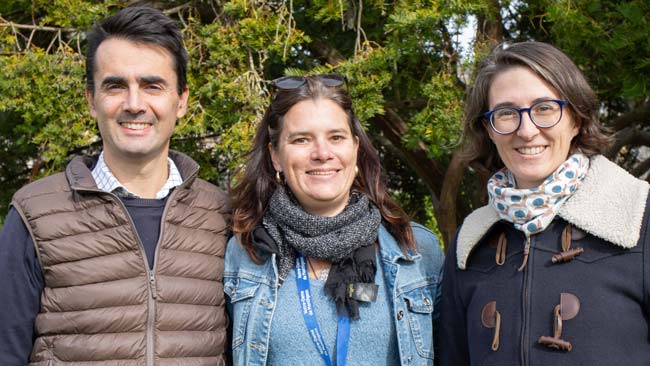
Going for hope
“Seven years later, I believe everything is grace. I say it this way, simply. If my testimony could help someone else to walk this path, it would already be a great thing. Grace is conveyed by hands, gazes, voices. It is conveyed by strangers and by loved ones. It is conveyed by the prayer of the Church.”
“If I were to leave one word for those who are being hit by a trial, I’d choose Hope. Accept helping hands. Let yourself be approached. Don’t close yourself off. Speak out. Weep. Walk with others. Let time work. It’s not giving up on your child. It’s learning to live with his / her absence without choking the love.”

